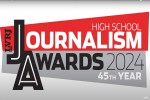EDITORIAL: Nevada education activists seek to impose school agenda by judicial fiat
The unquenchable Nevada education establishment last week launched phase two in the most recent incarnation of its perpetual effort to divert billions in additional revenue to the public schools.
On Wednesday, a self-described education advocacy group known as Educate Nevada Now announced a lawsuit fronted by nine parents who argue that the state has failed to meet its constitutional obligation to fund the public schools. The legal filing follows the Clark County Education Association’s January announcement that it intends to qualify two ballot questions asking Nevada voters to raise taxes by more than $1 billion for K-12 education.
The two actions are intertwined and represent a calculated attempt to pressure lawmakers and Gov. Steve Sisolak into approving massive spending hikes next year that will ultimately be siphoned off by the teachers unions. The lawsuit also signals that the vocal education lobby would eagerly trample the democratic process in order to impose by fiat its self-enriching agenda.
The lawsuit challenges “the adequacy of the Nevada public school system, its funding and resources and its outcomes, which fall egregiously short of the sufficiency required by the Nevada Constitution, the laws of this state and the pronouncements and benchmarks set by the state itself.” The 37-page filing proceeds to a crescendo in which the plaintiffs demand that a judge order the Legislature to “sufficiently” fund education, whatever that means.
Never mind that the judiciary has no such authority.
The lawsuit — modeled after similar efforts in other states — seeks to have a judge circumvent the governor, the Legislature and the citizens of the state by implementing public policy from the bench. It’s certainly a delicious irony that to support their cause the plaintiffs actually cite Guinn v. Legislature, a 2003 case in which the state Supreme Court so overreached in an effort to do precisely the same that the justices later repudiated the decision.
The state constitution does not define or even mention “adequate” funding for the public schools. And the document makes clear where such decisions must reside in a democratic republic. When it comes to the public schools, “the Legislature shall provide for their support and maintenance by direct legislative appropriation from the general fund,” reads Article XI, Section 6. “The Legislature shall enact one or more appropriations to provide the money it deems sufficient” to cover the costs of Nevada’s K-12 system.
Nowhere does the constitution empower the judiciary to substitute its interpretation of “sufficient” for that of the elected Legislature. Under the separation of powers doctrine, a judge’s role is to assess statutory constitutionality not to mandate legislative results.
The plaintiffs get one thing correct, though. The current system is failing Nevada students, who, as a group, score near the bottom in academic achievement by most state rankings. This despite repeated and regular infusions of money — lawmakers approved a $1.4 billion tax package for the schools in 2015 and diverted another $250 million into the system last year. Yet despite all evidence to the contrary, education activists and unions remain steadfast in the belief that Eden exists just over the horizon if they can only find the pot of taxpayer gold.
It’s also significant that Educate Nevada Now and its supporters have fought relentlessly over the years to oppose virtually any measure intended to impose higher standards and improve outcomes in the public schools. In fact, accountability is kryptonite to education activists, which is the major reason why many taxpayers and lawmakers remain highly skeptical of the “more money, more money” staple in the education establishment’s hymnal.
Democrats are likely to hold both houses of the Legislature next session, and they will be under intense pressure to ramp up education spending. Nevada voters may also have the opportunity to pass judgment on two school tax hike proposals. Regardless of where you stand on school funding, that’s how the democratic process is intended to work. The courts have no business dictating outcomes.





























